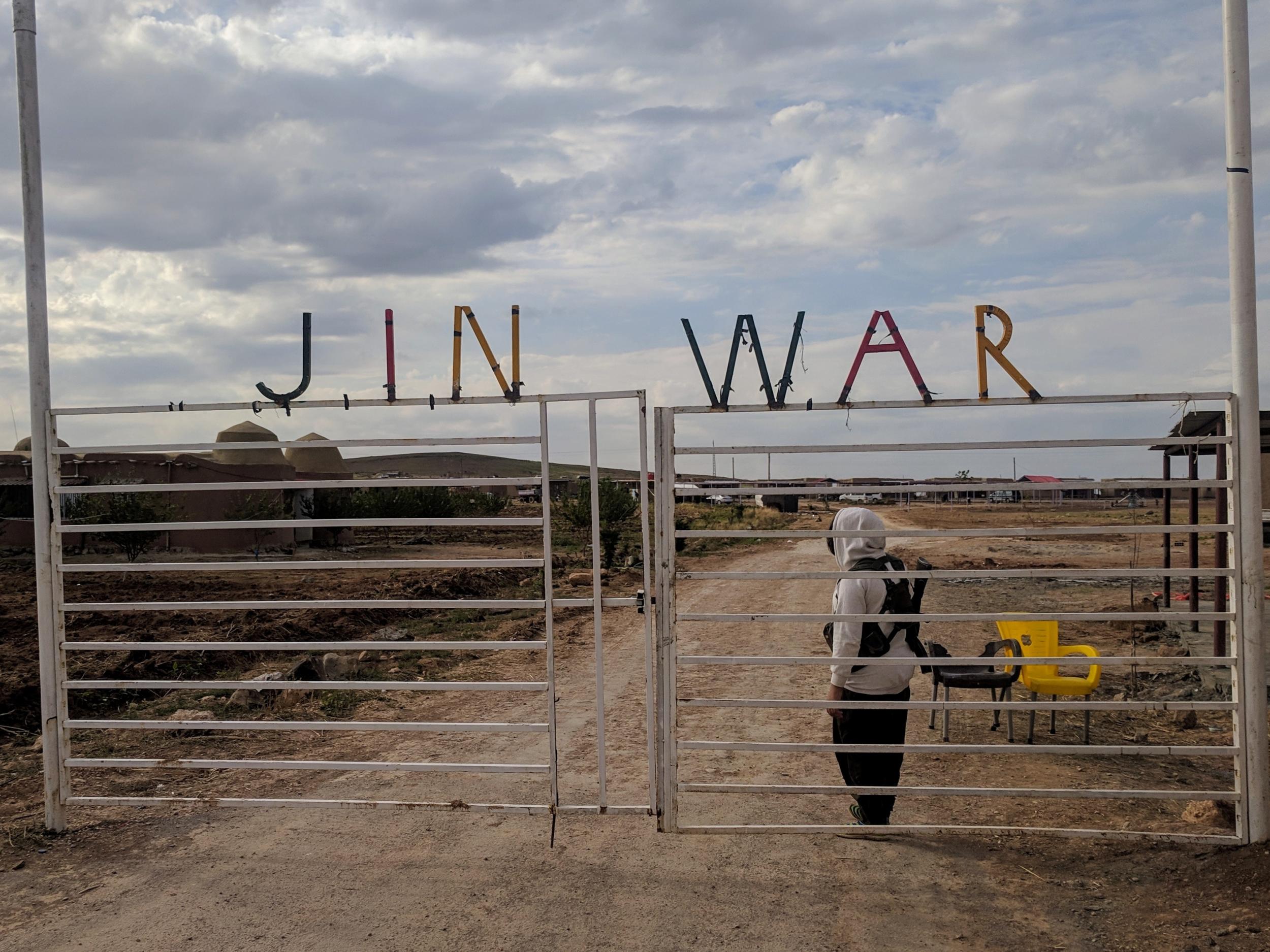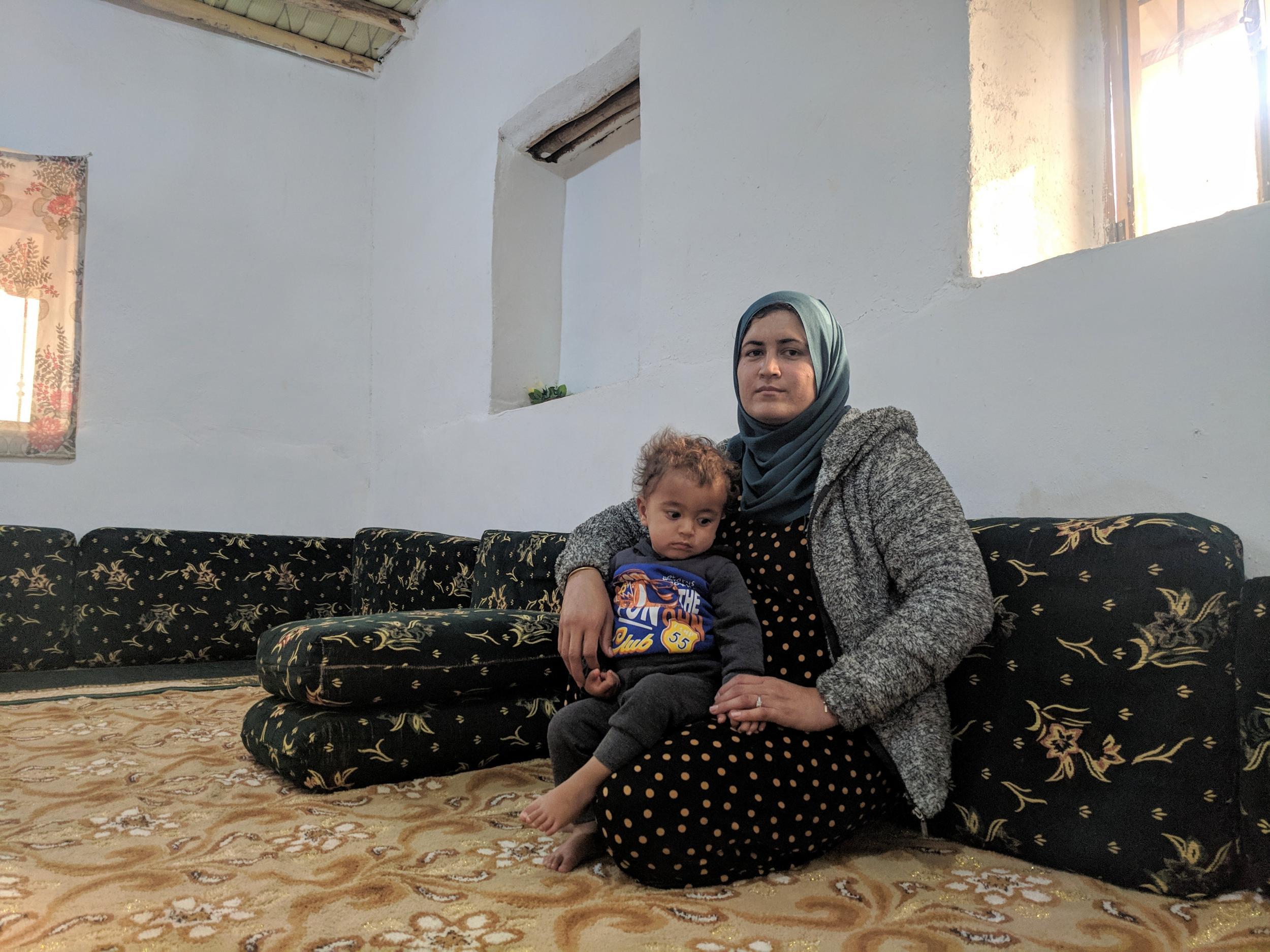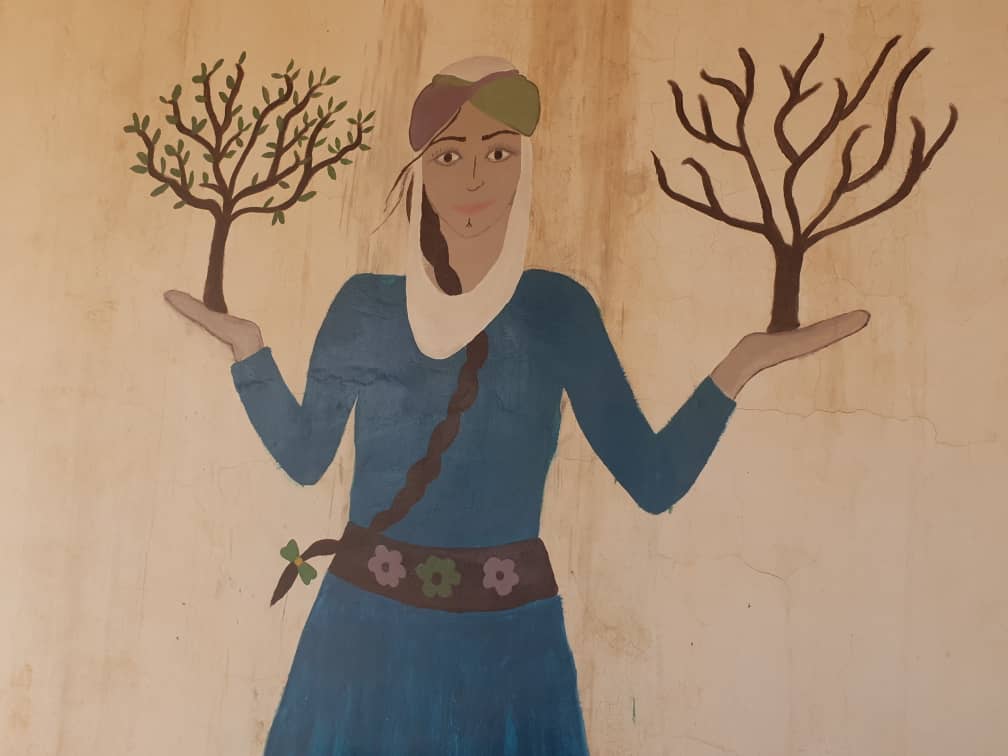Welcome to Jinwar, a women-only village in Syria that wants to smash the patriarchy
'This place is just for women who want to stand on their feet'
Your support helps us to tell the story
From reproductive rights to climate change to Big Tech, The Independent is on the ground when the story is developing. Whether it's investigating the financials of Elon Musk's pro-Trump PAC or producing our latest documentary, 'The A Word', which shines a light on the American women fighting for reproductive rights, we know how important it is to parse out the facts from the messaging.
At such a critical moment in US history, we need reporters on the ground. Your donation allows us to keep sending journalists to speak to both sides of the story.
The Independent is trusted by Americans across the entire political spectrum. And unlike many other quality news outlets, we choose not to lock Americans out of our reporting and analysis with paywalls. We believe quality journalism should be available to everyone, paid for by those who can afford it.
Your support makes all the difference.At the end of a long dusty road in the plains of northern Syria, a young woman with a rifle over her shoulder guards the entrance to the isolated village of Jinwar.
Thirty brick houses lie beyond the gate, decorated with splashes of purple and blue. They surround a large plot of agricultural land where rows of vegetables are growing.
A war zone perhaps isn’t the most obvious setting for a feminist utopia. But here, in a far corner of a country that has been devastated by ongoing conflict, a group of women have created an escape from the chaos around them. Built over the past two years, this small hamlet is a self-sustaining, ecological idyll where women rule and men cannot stay.
“There’s no need for men here, our lives are good,” says Zainab Gavary, a 28-year-old resident. “This place is just for women who want to stand on their feet.”
Jinwar is a women-only commune a few miles from Qamishli, a city in the mainly Kurdish region of northeast Syria. It was set up by local women’s groups and international volunteers to create a space for women to live “free of the constraints of the oppressive power structures of patriarchy and capitalism”.

The homes here were built by the women who are now living in them. Murals and statues of women at work are scattered around the site, in the centre of which is a garden of meadow flowers. It’s a jarring contrast to the villages that surround it.
That it was built in northern Syria is no coincidence. Just a few years ago, the entire area lived under the shadow of the Isis caliphate. The jihadist group captured large swathes of territory when it made lightning advances to the south and to the east of the Kurdish region, and across the border into Iraq.
It made its capital in Raqqa, just a few hours away by car, and carried out one of its most heinous atrocities in the town of Sinjar, less than a hundred miles east. Thousands of Yazidis were massacred, and still thousands more women were kidnapped by the group to be used as sex slaves.
In response to this wave of brutality, many Kurdish women took up arms to fight the extremist group. The story of these women facing off against a murderous cult that aimed to enslave them captured the attention of the world.
The founders of Jinwar see their project as a continuation of the “women’s revolution” that led those women to leave their families and go to war. But while the world may know the Kurds through images of women fighting on the frontline, Kurdish society is still deeply conservative. Jinwar was built as a place for women to escape the family-orientated roles that a patriarchal society has assigned to them. Gavary is one of them. She married when she was young, but her husband died not long after.
“My mother begged me not to come, but I still came,” she says. “I brought up my son alone for 10 years, I suffered a lot.”
“Without women there is no freedom,” she says, repeating a mantra that is written on the walls in Jinwar. “Until women educate and empower themselves, there won’t be freedom.”

The message here is deeply political. In addition to arguing for a greater role for women in society, Jinwar also promotes ecological and communal living as an alternative to modern life.
But Jinwar is also something much simpler: it is a refuge for women in need of support – particularly those who have lost loved ones in war.
Amira Muhammad, 33, is one of a number of widows who have made Jinwar home. Her husband was killed fighting Isis more than a year ago. She was forced to move back in with her parents and became entirely dependent on them.
There’s no need for men here, our lives are good
“I came here because I have five kids and I didn’t have an income or a house to live in,” she says. “Here they provide a lot of benefits like education for the kids, their living expenses. It is a nice village, most importantly, my kids like it.”
“We do our own farming, we plant trees. Every woman farms her own lot for her kids. We sell the harvest, and use the revenue to support our expenses,” she adds.

The residents of Jinwar are kept busy by the work required to be self-sustainable. The group take turns cooking and eat all their meals together in a large communal kitchen. There are animals to tend to and a school for the children. The village regularly receives visitors from the local area, who come to learn about the ideas behind the project.
Besides the widows, there are divorcees, and others who have simply chosen to live a life away from men. Seventeen-year-old Nisreen Qadir came with her sister. She says there are downsides to living an isolated life.
“Our life alone is sometimes boring,” she says. “But it’s a life of self-reliance, it is the life of free women.”

Join our commenting forum
Join thought-provoking conversations, follow other Independent readers and see their replies
Comments